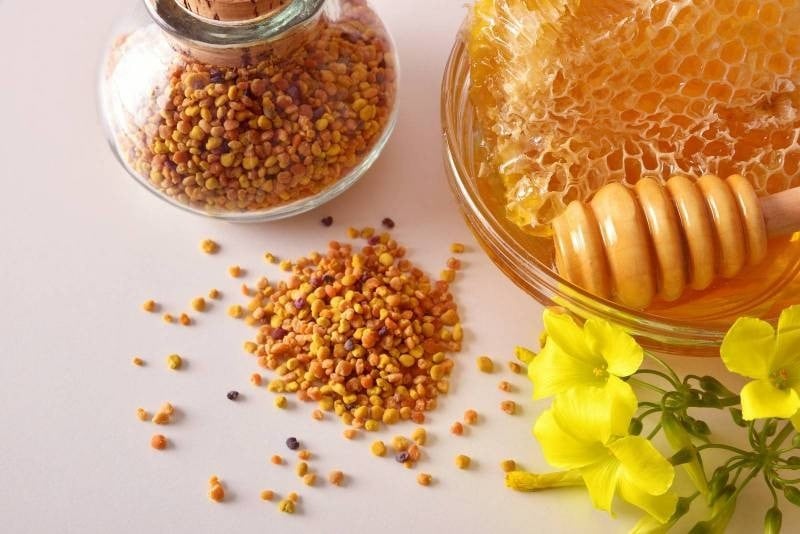
Benefits of pollen with honey
Pollen is a food substance collected from plant flowers and contains a wide range of nutrients such as vitamins, minerals and proteins. When the pollen cells are destroyed and the pollen in honey is pickled, it has potential benefits for health. Here are some potential benefits of eating pollen with honey:
- Boosting energy: The vaccine contains a group of vitamins and proteins that can boost energy and strengthen the immune system.
- Strengthening immunity: Pollen is believed to contain substances that help strengthen the immune system, which can help fight diseases and infections.
- Improving athletic performance: Some studies indicate that pollen may improve athletic performance and increase energy levels.
- Improve digestive functions: Pollen is said to be beneficial for digestive health and improving digestion.
- Reducing stress and stress: Pollen is believed to contain compounds that help relieve stress and stress.
- Improving skin health: The vaccine is rich in nutrients that can contribute to improving skin health.
Taking pollen with honey should be done with caution, especially for people who may be susceptible to allergies or sensitivity to bee products. It is also best to consult a doctor before adding any new supplements to your diet.
What are pollen grains?
Pollen grains are small particles containing substances from the source of the vaccine (such as infectious viruses or particles thereof), and are used to stimulate the body's immune system. The goal of injecting vaccines is to stimulate the immune system to produce an immune response, without causing actual disease. When the body is exposed to such vaccine particles, the immune system recognizes them as foreign particles and begins producing antibodies and other immune cells. This immune response helps protect the body from getting sick when it is exposed to real viruses or bacteria in the future. Vaccines play an important role in preventing infectious diseases and increasing herd immunity in society. The composition of pollen varies depending on the type of vaccine and the disease targeted.

